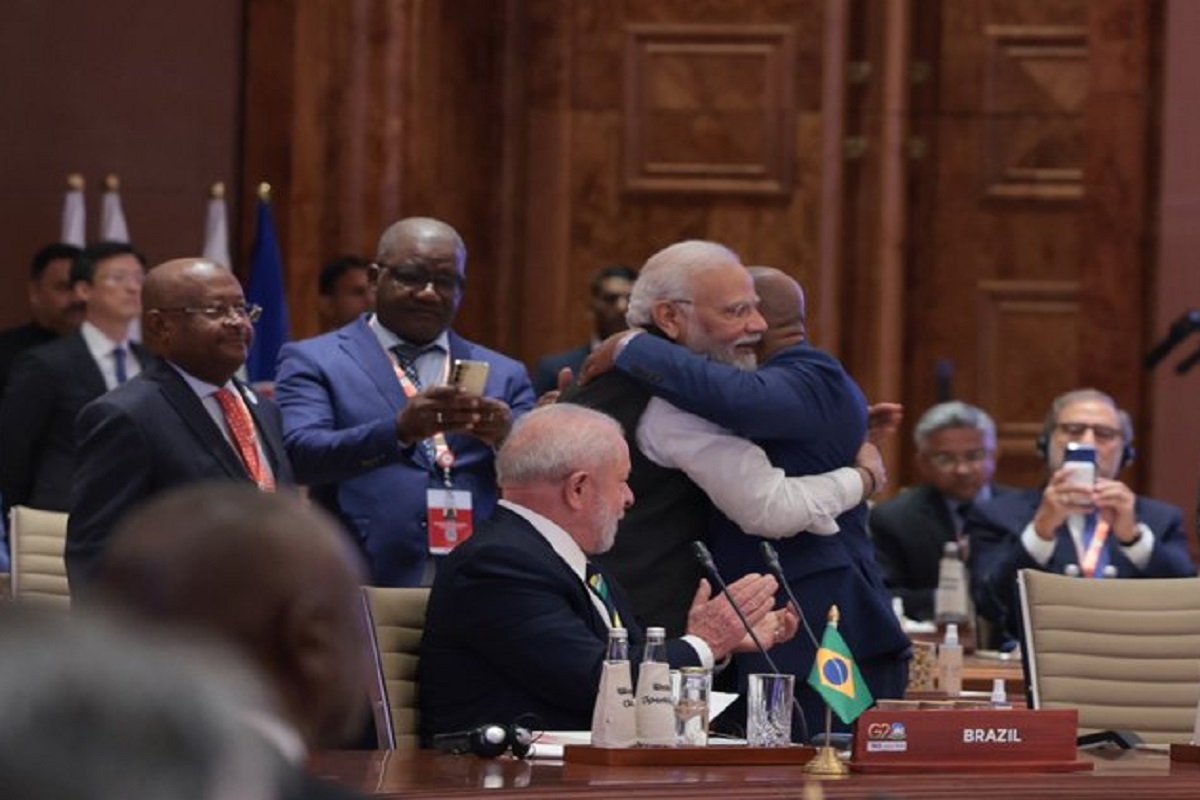Congress’ ‘mangalsutra’ attack on PM Modi over Prajwal Revanna sex scandal
Congress also urged Narendra Modi government at the Centre to bring back Revanna with the help of Interpol.

African Union (AU) Chairperson Azali Assoumani hugs Prime Minister Narendra Modi after the Union became permanent member of the G20 in New Delhi. (Photo: PMO/X)
In what is being hailed as a major diplomatic victory for India, Prime Minister Narendra Modi secured a permanent seat for the African Union (AU) in the Group of 20 during the 18th G20 India Summit, which was held in New Delhi from September 9 and 10. After the announcement, AU President Azali Assoumani went to PM Modi and hugged him.
Assoumani said he was about to cry when PM Modi invited him to take a chair as a permanent member of the grouping during the “One Earth” session of the G20 India Summit in Delhi. The AU president thought their inclusion would be debated and after that a decision will be taken. However, it was PM Modi’s effort that ensured that the inclusion of the AU was not debated.
The African Union’s journey to the Group of 20 (which will now be known as the Group of 21) began in June this year when PM Modi wrote to members proposing its’ inclusion. The US and France replied in the affirmative, and other members followed suit.
Advertisement
The development is being seen as New Delhi’s effort to counter China’s growing influence in African countries. Several African nations have taken debt from China and in return, they allow Beijing to build and run ports and carry out several other infrastructure projects.
In 2020, Tanzanian President John Magufuli cancelled a “killer” Chinese loan worth $10 billion. The loan agreement was signed by his predecessor Jakaya Kikwete to construct a port at Mbegani creek in Bagamoyo. It allowed China to run the port for the next 99 years without any interruptions.
China has often been accused of using debt-trap diplomacy to gain influence in developing countries. This involves lending money to countries and then using the debt as leverage to gain control of strategic assets, such as ports and infrastructure.
This practice has been particularly evident in Pakistan, where China has lent billions of dollars to build infrastructure projects and in return gained control of the country’s strategic Gwadar port for 40 years.
India now wants to counter the Chinese by exposing their evil agenda and offering African countries a chance to represent their interests at the global level.
Italian PM Meloni signals departure from Belt and Road Initiative to China
Experts believe that PM Modi’s move to include the AU in the G20 will have long-term benefits for India. It will help New Delhi build trust with African nations. Trust brings business, and PM Modi knows this. He even highlighted this in his opening remarks during the G20 India Summit. The prime minister gave a mantra of “Sabka Sath, Sabka Vikas, Sabka Vishwas, and Sabka Prayas” to transform the trust deficit caused by armed conflicts between countries around the world.
After the conclusion of the New Delhi G20 Summit, AU President Assoumani praised India’s role and termed the country a superpower ahead of China. “India is a superpower in terms of population, India is ahead of China now,” Assoumani told reporters outside the Bharat Mandapam Convention Centre in Delhi.
His statement is a testament to PM Modi’s efforts to counter China’s growing influence in the African continent. The day is not far when India will be the biggest trade partner of the AU, surpassing China without capturing their resources.
Chinese felt cornered at G20 as India dominate the summit
Advertisement